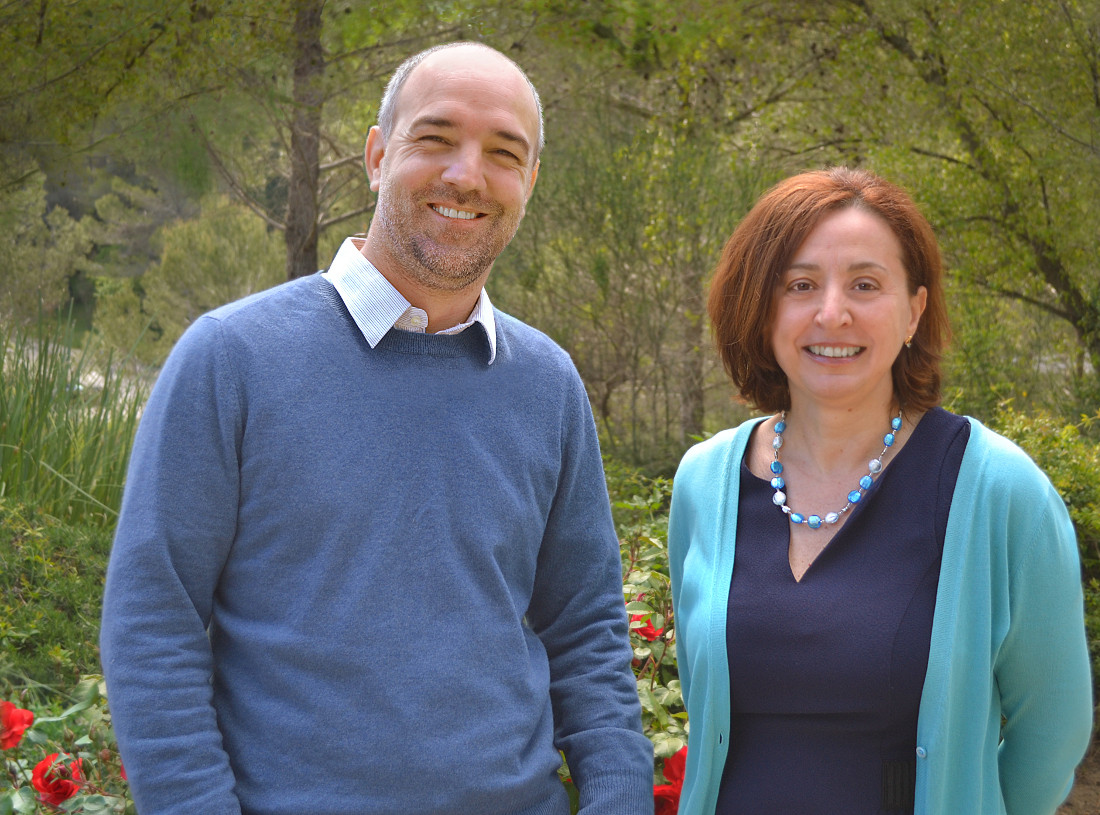Dr. Maurin and Dr. Bardoni were awarded $90,000 over two years from FRAXA Research Foundation for their project, “Modulating cAMP And cGMP Levels As A New Therapeutic Approach For FXS”, in May 2016.

They aim to gain a better understanding of how the brain develops and functions
Like snowflakes, people with Fragile X Syndrome are not all alike. Some respond differently to the same drugs, as previous Fragile X research has shown.
Understanding this phenomena is leading French scientists Barbara Bardoni, PhD, and Thomas Maurin, PhD, to identify new drugs to improve treatments in patients with Fragile X. Among the proteins they have identified, some are known to control brain function and development. This has helped identify a set of candidate proteins for which there are pre-existing active chemical compounds that target their activity. Using these compounds in vitro may revert some FXS hallmarks.
“Access to different drugs will allow some flexibility in treatment in the future,” Bardoni said. “We’re looking at using different molecules for different patients at different times to be efficient for the majority of FXS patients.”
Their overarching research goal: Identify a cure for FXS.
Targeting Individuality
“We want to better understand the function of FMRP by identifying the molecules it interacts with,” Maurin said. “From these results, we expect to gain a better understanding of how the brain develops and functions. Ultimately, we hope targeting the molecule we identified in vitro will also work efficiently in humans, paving the way to new drug developments for FXS and improving patients’ quality of life.”
So far, molecules used in vitro have not been as effective as hoped. By collaborating with chemists from around the world to synthesize molecules, there is hope advance therapeutics will be more effective in animals.
With FRAXA support, the scientists will start to treat FXS mice with these compounds to study their effect in a more complex and integrated system.
Bench to Bedside
For Bardoni, taking research from benchside to bedside is extremely challenging and a dream for every scientist involved in medical research. Knowing patients are waiting for results is something that drives her forward.
“FRAXA supported me when I was a post-doc and more recently my lab for different projects, allowing several important advances in my research,” she said. “We expect FRAXA will help us move forward and translate our results into a new therapeutic approach for FXS.”
For Maurin, FRAXA support means his research is more productive and interesting.
“FRAXA plays a very important role in supporting innovative projects and helping scientists develop new ideas and concept in the field,” he said. “This research is a good opportunity to translate the basic science into something that could help find a cure for a human disease. I like the challenge to be involved in a study of a human disorder. The idea my work could contribute to a treatment for a severe disorder is a big responsibility.”

